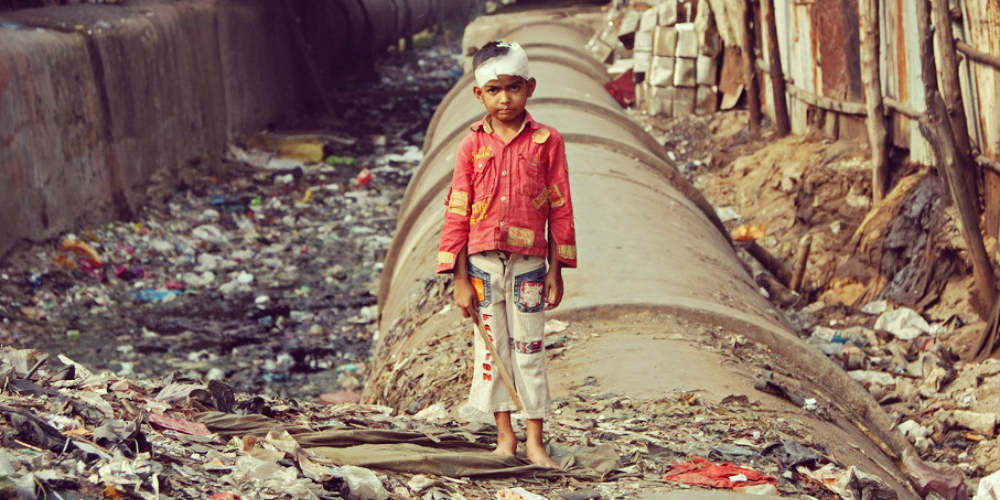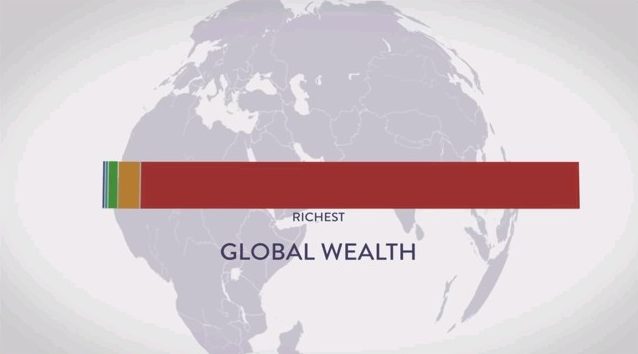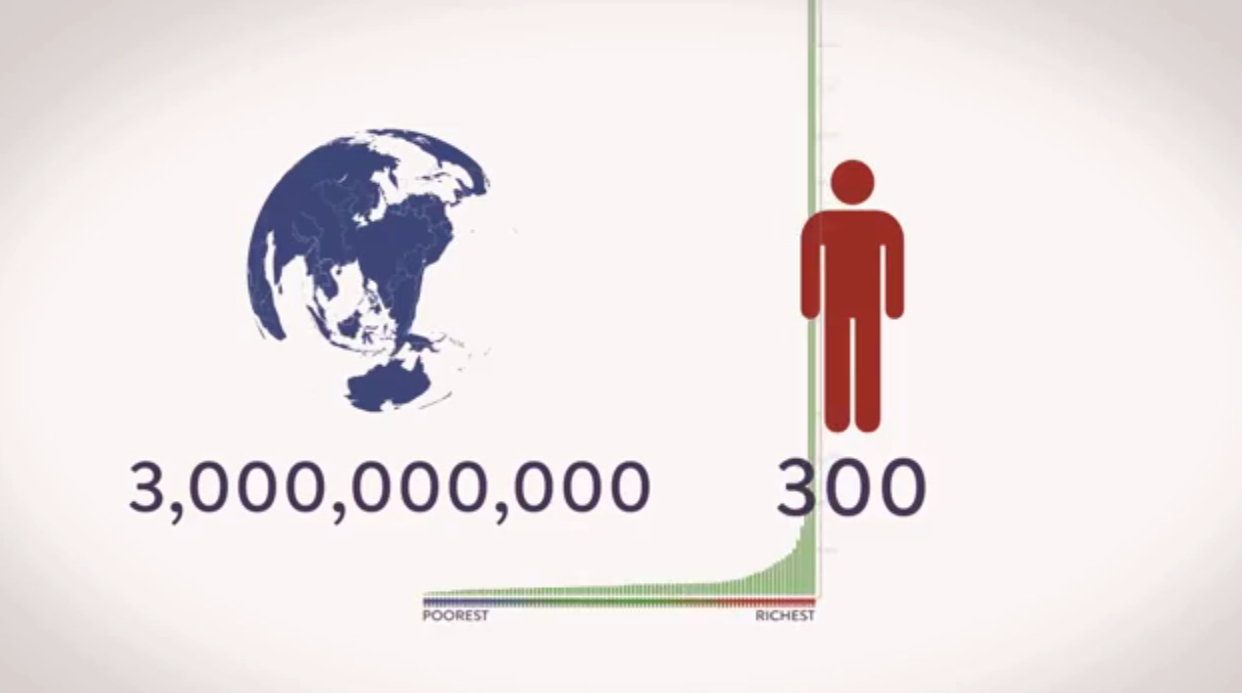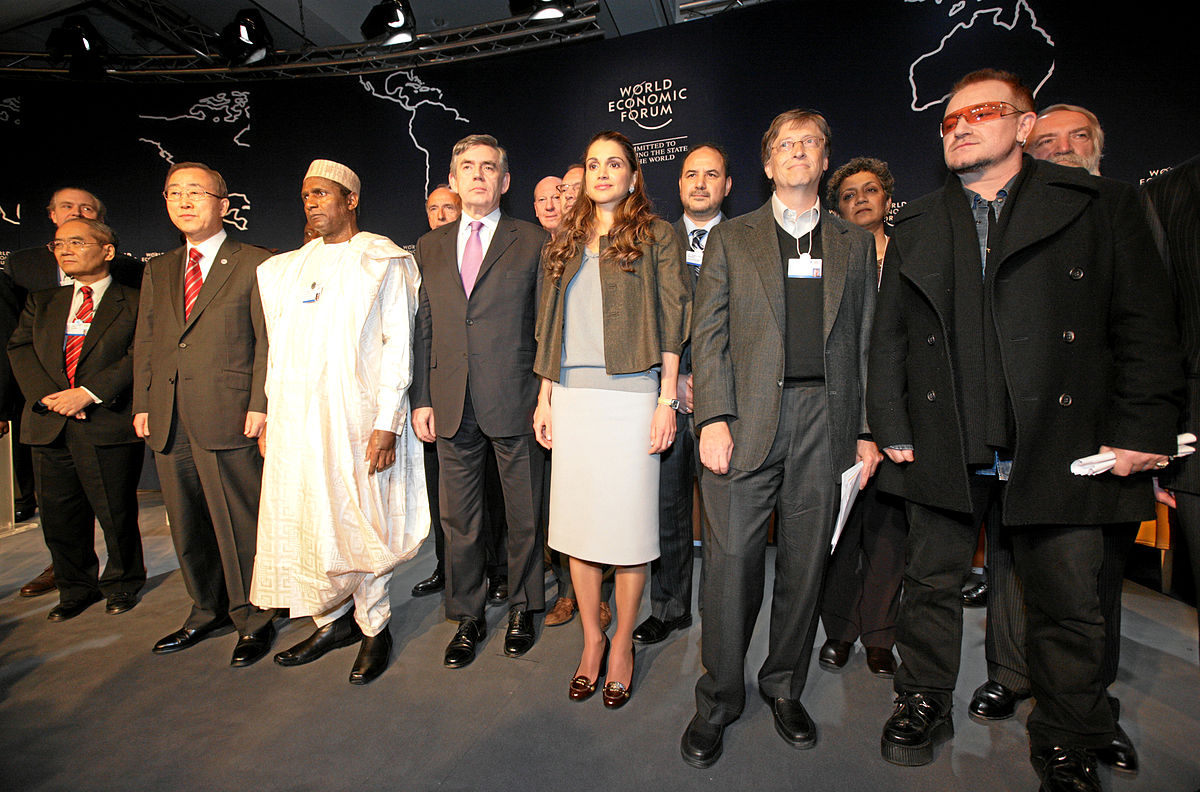
We recently shared on social media this article called “What Bill Gates doesn’t know about poverty” (originally published by TheRules.org). The article deals with the fact that although Gates has a noble purpose trying to help eradicate poverty, he seems to be missing the main point: he is not addressing where poverty comes from and how it’s generated. His actions aim at attacking the symptoms only, not what has caused poverty in the first place.
As a response to such article, someone made the following (surprising) comment:
“Poverty is a natural condition of humans. Wealth does not exist until it is created. Do Socialists imagine that houses, cars, clothes, naturally grow in nature on trees?”
Throughout this post we would like to give him an answer:
Dear commenter,
We don’t agree that poverty is a natural condition of humans. As Nelson Mandela said: “Like slavery and apartheid, poverty is not natural. It is man-made and it can be overcome and eradicated by the actions of human beings.” Forget about the concepts of socialism or capitalism for a minute. Poverty is created by us, humans. If you have any doubt about this being true, have a closer look at these examples that come from observations during our past travels:
- In tiny Malana, a village in the Himalayas, the residents considered themselves an independent republic isolated from the rest of India; they lived peacefully with one another and their environment. They had their own election system based on their spiritual traditions; they built their houses with the wood provided by the dense forest; they used marijuana to make shoes, clothes and rope.They were a self-sufficient village until the government of India came and prohibited the use of marijuana, banned the use of trees to build their houses and broke their democratic system. This same government began to bring “progress” by building a dam and a road to their village without consulting the local population. In the process, massive amounts of land were destroyed; the villagers no longer had a vast area where to take their sheep and cows to graze. Because marijuana could not be used to make their garments, they had to import shoes and clothes from far away. And because they could no longer build with wood, they were forced to buy cement and materials that were not local or cheap. The town succumbed into a spiritual and financial depression and because their democratic system had been abolished, everything that had held the village together fell apart. Poor and divided. How is this a natural condition?
- In Nicaragua, if the canal goes through, hundreds of people will have to be moved from their land so that the project can be built. They won’t have land to grow their food and they’ll be most likely forced to migrate far away from home to the already strained capital city where many go with the hope to find a job and where a majority ends up begging, sniffing glue, stealing and selling sex. In the best case scenario they will get a meager job that pays 150 dollars a month; not too much if you have to feed many mouths. So how can we even think and believe that poverty is something natural?
- In Tibet, the Chinese government has set up laws, forbidding nomads to own yaks and sheep, as their 2000-year-old lifestyle is considered “backward”. These Tibetan people have been forced to settle in brand-new made towns to supposedly participate in the country economic growth. As Michael Buckley put it in his book Meltdown in Tibet: “Ex-nomads are marginalized because they cannot speak Chinese, a key requirement for getting a decent job. They have gone from being self-sufficient as nomads to being unemployed and dependent on government handouts. […] It is sad to see proud ex-nomads scavenging for metal scraps, or begging food. Some nomad woman have drifted into prostitution. Men have taken to drinking alcohol.” These nomads used to live sustainably and have been forced to join the “progress” mechanism; they now find themselves in much worse conditions. Isn’t this a clear example of poverty creation?
- Private corporations such as Nestlé, Pepsico and Coca-cola dig for water in the most beleaguered places in the world – like in Pakistan. They buy off land and then drain the piss out of the place, leaving locals impoverished and without access to water (except those who can pay for it). How can that possibly be considered natural?
No, dear commenter, poverty does not sprout naturally or out of nowhere. Poverty is man made; we create it out of ignorance of the Self and a global debt-based monetary system we have set up and obeyed for eons.
If we want any significant change to eradicate poverty, working on the symptoms won’t be enough. We need to start transforming the very structures and systems that cause it.
This article was originally published on weareco.org.







I dont think the poster of the comment meant that poverty isnt man-made. Yes poverty is man-made, but what he meant is:
Its human nature to man-make poverty
Poverty, empires, sexual exploitation have existed since the beginning of time. Modern day is no different. Today we are actually moving towards more extreme forms of it with the aggressive american enforcement of neoliberalism.
If we want to fix poverty, we must ask ourselves:
How do we change human nature?
Even people who want equal often only want it for selfish capitalistic reasons. The middle class thinks the 1% makes too much, the middle class doesnt make enough and the government allows too much immigration. The middle class wants equality; however, all their wants are based on self interest and not equality. They are no better than the 1% and they believe in capitalism just as much as the rulers of society.
It was really wow.
In a food way
The natural human condition is scarcity. infinite needs and limited resources to satisfy them. Poverty has been with the human being since the beginning of times. Every known civilization had social hierarchy, including slaves. Tribes around the world fought for resources, often eliminating, decimating or enslavering the weaker group. Following your example, in Malana, as you depict it, they succeeded in creating a system in order to live well and wealthy until the power of government step in. Same with the other examples, the stronger against the weak, so yeah, it is pretty natural, we are light and shadow, both individually and collectively.